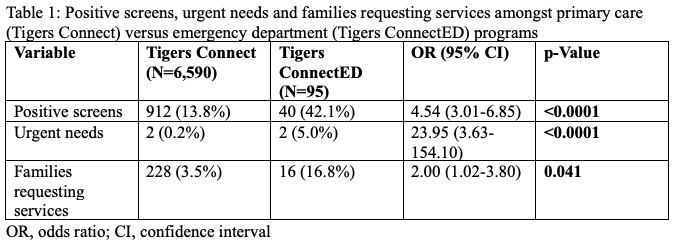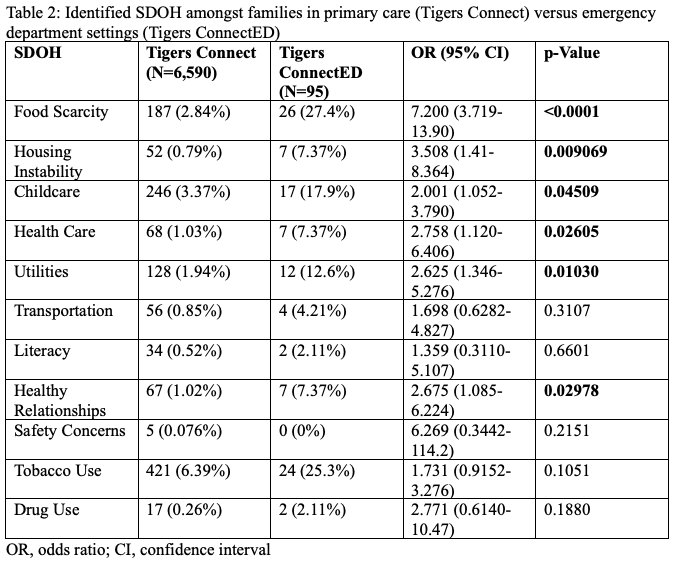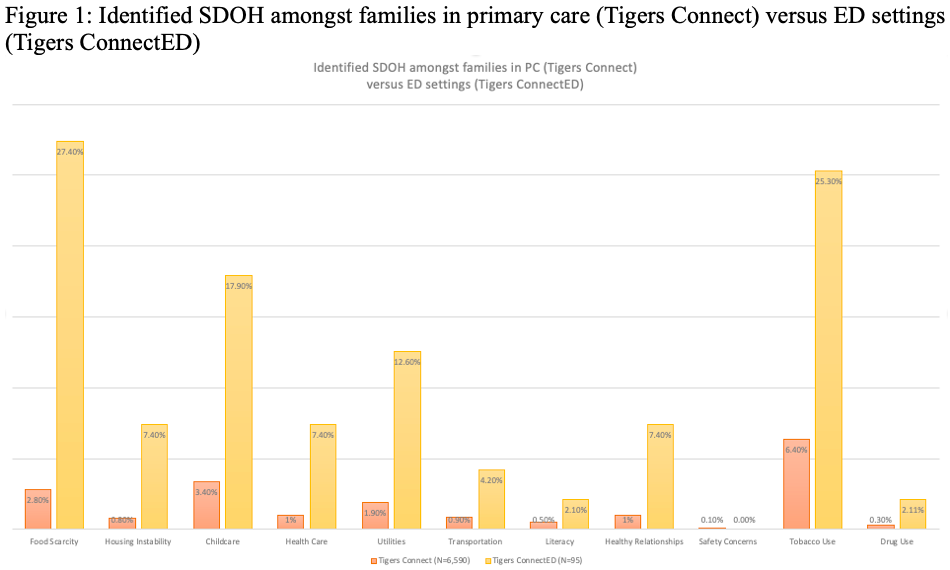Health Equity/Social Determinants of Health
Session: Health Equity/Social Determinants of Health 1
430 - Comparing Outcomes of Social Determinant of Health Screening and Intervention Programs in the Emergency Department and Pediatric Primary Care Settings
Friday, May 3, 2024
5:15 PM - 7:15 PM ET
Poster Number: 430
Publication Number: 430.134
Publication Number: 430.134
.jpg)
Destri Eichman, BA (she/her/hers)
Medical Student (2nd year)
University of Missouri-Columbia School of Medicine
Columbia, Missouri, United States
Presenting Author(s)
Background: Social determinants of health (SDOH) have significant impacts on the long-term health and well-being of children. The majority of programs screening for and addressing SDOH have been implemented in primary care (PC) settings, despite the fact that families struggling with SDOH often depend on emergency departments (ED) for healthcare. Due to the rarity of ED-based SDOH programs focused on children and their families, differences in SDOH amongst PC versus ED-utilizing families have not been studied. The University of Missouri operates a SDOH screening and intervention program in the pediatric PC setting, and piloted an ED arm of this program for 8 weeks to assess needs and feasibility.
Objective: To compare SDOH and amenability to resource assistance between PC and ED-utilizing families.
Design/Methods: This cross-sectional study was performed with prospectively obtained data from an 8 week pilot program, in which families of pediatric ED patients were screened for 11 domains of SDOH. Families screening positive for a SDOH were offered remote follow up for resource assistance. ED pilot data was compared to data obtained from the analogous program functioning in the PC setting from 2021-2023. Fisher’s Exact test was used to compare outcomes of SDOH screening and requests for resource assistance between the ED and PC settings.
Results: ED families were significantly more likely to screen positive for SDOH compared to PC families (OR 4.5, p< 0.0001). Urgent needs were significantly more likely in the ED (OR 24, p< 0.0001). Families with positive SDOH screens were significantly more likely to request services in the ED (OR 2, p=0.04). Tobacco use (6.4%), lack of childcare (3.4%) and food scarcity (2.8%) were the most common SDOH for PC families. Food scarcity (27.4%), tobacco use (25.3%) and lack of childcare (17.9%) were the most common SDOH for ED families. ED families were significantly more likely to experience food scarcity (OR 7.2, p< 0.0001), housing instability (OR 3.5, p=0.009), lack of childcare (OR 2, p=0.045), health care (OR 2.8, p=0.03), utilities (OR 2.6, p=0.01) and health relationships (OR 2.7, p=0.03), compared to the PC families.
Conclusion(s): ED-utilizing families frequently have unmet social needs which can affect their children’s long-term health. This study confirms that ED families are not only more likely to have various unmet SDOH compared to families utilizing pediatric PC, but are also more amenable to requesting resource assistance services. These findings emphasize the need for development of SDOH programs for families in EDs.



